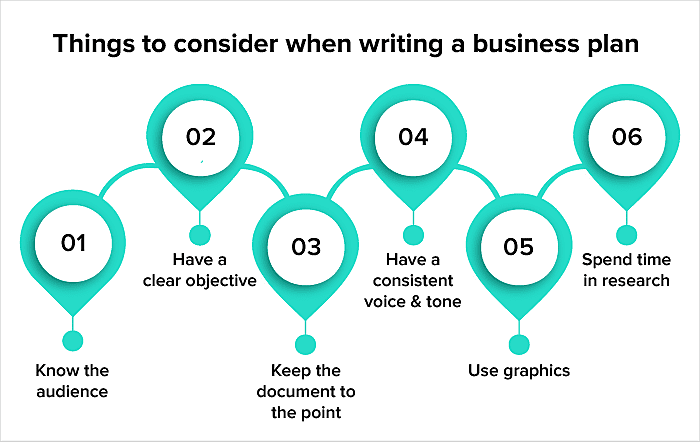
Writing a business plan is often considered as the key to business success. However, there are businesses that have seen profits even in the absence of a business plan. In the presence of great timing, rock solid sales skills, a passion for entrepreneurship, and luck, entrepreneurs tend to create profitable businesses without creating a business plan.
But wouldn’t you like to take a safe approach where you have a detailed business plan strategy in front of you and not leave your business’s future on luck? More often than not, having a business plan structure offers you more clarity and multi-faceted benefits that you would often lack in the absence of one. Let's look at some of those benefits of having a business plan model in place.
The importance of business plan
Every stakeholder - both internal and external - is able to gauge the present and future of a company through a business plan strategy. While typically associated with funding ventures, business plan for startups also helps with achieving a range of other benefits.
- Planning - Writing down the business plan is an amazing exercise to understand the current extent of your business and the resources and timeline you will need to reach the next milestone.
- Research - Developing a business plan calls for you to research prospective customers, the market, competition, and the economic scenario. Insight-filled information like this serves the business in the future.
- Partnerships - The best business plan is one that helps startups find the right partnerships for their growth. When companies show clarity in their business plans, they are able to convince future partners of the business's longevity.
- Funding - One of the primary reasons why founders invest time in writing a business plan is to get funded. Carrying every critical aspect of the business in it, the document makes it easier for founders to get monetary support from banks and investors.
Now that we have established the many benefits that come attached with creating a business plan, let us get down to the fundamental basics of writing one.
The step-by-step guide to developing a business plan
Starting the process of creating a business plan model can be intimidating for new entrepreneurs, but having a defined step-by-step guide for writing a business plan for startups helps with setting up a clear work process.
Here are the different components of a business plan that come together to make a well-strategized document and form a part of every guide to start a business.
1. Executive summary
While usually the first page of the business plan strategy, we recommend working on the section at the end of the document. It is a high-level detailing of a business (not more than one page long) that persuades the recipients to act or simply get an overview of the current and future prospects of a company.
- Business idea. What is it that the company does?
- Business goals. What do you want to achieve in the short and long term?
- Product details. What do you sell and how is it different from competitors?
- Target market. Who do you sell the product to?
- Marketing plan. How do you plan to reach the customers?
- Financial state. What is the current and project earning?
- The team. Who are the people working behind your business?
2. Company overview
This is one of those components of a business plan that answers two key questions: who are you and what are the future goals. This helps give the stakeholders an insight into why you are in business and what separates you from your competitors. Typically, here are the things that form the key elements of a business plan -
- The business structure
- The nature of business
- Details of the industry
- The company’s mission, vision, and values
- The company history
- Team details like the key personnels and the salary structure.
In addition to these, business goals form a crucial part of the business plan for startups. When you prepare the short and long-term plan of the company, ensure that your marketing strategies for growth consist of SMART objectives.
3. Market analysis
There are three aspects of market analysis when writing a business plan structure - customers, competitors, and the market/industry your company will be operating in. This section is the most critical one as choosing the wrong market, or the right one at the wrong time, can make you a struggling business.
Understanding the scope of your market lies in having a clear idea of -
- Your customers - what they are looking for, their pain points, and what makes them act.
- Your competitors - how are they selling a product, what are their USPs, their mode of doing business.
- Your market - what are the economic, political states of your industry, what is your SWOT analysis in the market, and the role you are playing in taking the industry ahead.
4. Products and services
This is probably one of the most crucial parts of creating a business plan. Every other aspect of the best business plan model will fail if the customers do not like your product or service. Here, the details of the product, the benefits it offers, its lifecycle, and how the product is better than competitors’ are explained in detail.
For an easier understanding, let us divide this business plan structure in three parts -
- Product benefits - USPs, benefits the features generate, and differentiating points.
- Production-level details - The process of creating products, raw material sourcing, quality assurance process, supply chain, and bookkeeping.
- Post-product creation - Seasonality of product sales, key marketing process, and pivot strategy (if any).
5. Marketing plan
The marketing plan you choose when developing a business plan depends entirely on your customers. In addition to adding in the 7Ps of marketing, you should add in an extensive growth strategy in the document. On a high-level, here are the things that your marketing elements of a business plan should have -
- Business USPs
- Target audience
- Promotion strategy
- Customer retention plans
- Tactics for business expansion
When defining the future-centric promotion plans, it will help to add in the details of the best mobile app marketing campaigns that worked for your business and plans to elevate it further.
6. Logistics and operations plan
The operational side of your business defines its long-term success. However, it is also one of the most difficult sections to work on when writing a business plan structure. While you should avoid getting into the details in this section, it should give your readers an impression that you know about your supply chain process.
Here are the elements that should be added when developing a business plan strategy -
- Suppliers and vendors details
- Production process
- Equipments used to develop the product
- Shipping and order fulfillment process
- Inventory details
7. Financial plan
The last element of a business plan for startups lies in the financial plan. This is the section that hand-down defines the probability of your company getting funded. Your stakeholders and prospective investors will be very interested to know how your business is performing, what are the future financial projections, your funding request, and how are you planning to address unforeseen contingencies.
Thus, when you prepare the financial plan, know the budgeting mistakes to avoid and add in critical documents like - Income statements, Profit and loss statements, Cash flow statements, and Balance sheets to justify your funding request and give an assurance to the investors of high return.
So here was the importance of business plan and the elements to cover when creating a business plan for beginners. Before we close the article, let’s look at some of the crucial things to consider that will improve the chances of your business plan getting read and acted on.

Parting notes
The failure to plan prepares a plan to fail. The importance of a business plan lies in not just securing your funds but also giving a roadmap to the internal team to work on. It helps people understand the role they play in business success and what the company’s growth trajectory is like.
We hope that you got the answer to how do I write a good business plan and will be on the path to making a document that will get you investors and internal stakeholders’ attention.

Content Writer
Sakshi Kaushik is a wordsmith extraordinaire who transforms complex technical jargon into captivating, must-read articles. Armed with a Masters in Economics, Sakshi dissects intricate topics with the precision of a seasoned expert. Her insights have graced prestigious platforms like Hackernoon, Ecowiser, and Medium, captivating readers and tech aficionados alike. With a career spanning influential companies like Teleperformance, Finex, and SparxIT Solutions, Sakshi is well-versed in navigating both the keyboard and the boardroom.
In addition to her extensive experience, Sakshi holds HubSpot certifications in Digital Advertising and Content Marketing, and has earned further credentials from UpGrad, Coursera, and Great Learning. Dedicated to sharing her expertise with mobile app developers and tech enthusiasts, Sakshi's passion shines through her writing. When she's not crafting compelling content, she enjoys diving into thrilling novels and exploring diverse worlds.













